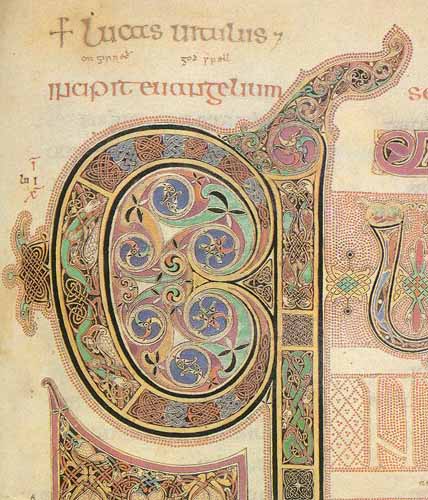CHAPTER NINE: COMING TO QANA
It did not take long for Andrew to notice some noteworthy differences between Jesus and John the baptizer. Jesus was no ascetic, nor did he dress in spartan or prototypical prophetic clothing, nor did he shun the unclean. Indeed, he seemed to actually enjoy spending time with people guilty of not only ritual lapses but significant moral lapses as well. When asked about this he replied to Andrew that he had not come primarily to call the righteous but rather the sinners, the lost sheep of Israel, and as it turned out, the least, the last, and the lost loved him, and followed him around like stray puppies looking for more attention and sustenance and help. This quite naturally made Andrew nervous, as he knew what some Jewish authorities, especially some Pharisees would say about this. It was obvious that Jesus was not concerned to make people, even his disciples comfortable, he was concerned with who gets the cure, who is ‘born again’ or ‘turns and becomes as a child’, as Jesus put it.
The four fishermen, Andrew, Simon, James, and John who accompanied Jesus already had one traveling companion that made them feel uneasy–a man named Matthew, or as others called him, Levi, because he came from a Levitical family. The way his recruitment had transpired was remarkable. Matthew had been there the day of the big catch of fish, and he could hardly contain his excitement–mainly because it meant he could now collect back taxes from the Zebedees and the Bar-Jonahs. But the excitement was not only about that. Matthew had been able to tell that Jesus was a remarkable person, so remarkable that when Jesus shocked him at his tax collectors booth in Kefer-Nahum by inviting him to come and be his disciple, Matthew on a whim decided to take him up on it.
Jesus was the first holy man who had ever given Matthew the time of day, never mind asked him to ‘come and become my follower’. To top it all off, Jesus had suggested they dine together that night, and Matthew agreed, inviting his friends, other tax collectors and ‘sinners’ to the meal. Naturally, the fishermen were not pleased at all with this development, as it made them look foolish, and caused all kinds of gossip in the little village. What kind of holy man could Jesus be, if he banqueted with the bad? It was a scandal! And yet, Jesus had indeed healed various people while in the village. No one could deny that. Still, it was good to get out of town, but traveling with Matthew was awkward. Matthew, according to Simon, was his blood-sucking enemy, a traitor who collected taxes for Antipas’ many building projects. Matthew for his part just kept smiling and asking Jesus questions. As a tax collector he could both read and write, indeed he wrote quite well, and Andrew could see he might be of value writing down the parables, aphorisms, riddles, beatitudes of their master. And at least he was out-numbered by the fishermen who figured they could keep him in line. Jesus had also recruited one other resident of Bet-saida beside the Zebedees, a man with a Greek name–Philip. And Philip actually knew someone in Qana he wanted to introduce Jesus to–a devout student of Torah named Nathan’el.
The road to Qana was not a winding one, as it went pretty much straight from Tiberias past the cliffs of Arbel and almost due west for most of the journey. Once the main north-south road was passed, then there were more winding footpaths to follow into this upland village whose name means ‘place of reeds’, because close by there were marshy areas in the spring. The village was a very religious village, full of mikvas and also cisterns to collect water for purification and was only about four miles from Netzerit. Various of Jesus’ relatives lived in this little village, and it had even produced some scholars, some scribes. Jesus was headed to Nathan’el house first, on the recommendation of Philip.
As this band of traveling companions came over the hill to the edge of Qana, Philip ran ahead to Nathan’el’s house and knocked on his door. Nathan’el opened the door and Philip, hardly being able to contain his excitement said “We have found him about whom Moses and the prophets wrote, Jesus bar Josef from Netzerit!”
Looking incredulous at his friend, Nathan’el retorted “Surely not! Can anything good, or significant come out of tiny Netzerit, much less the messiah?”
Philip’s only reply was “Come and see.” By this time, Jesus and the others had arrived in front of Nathan’el’s small house, and as soon as Jesus saw him he said “Now here is an Israelite in whom there is no deceit, no dissembling.”
Dumbfounded Nathan’el replied “How do you know me?” to which Jesus responded
“In my mind’s eye I saw you sitting under your fig tree in your little court yard behind your house, studying a Torah scroll before Philip called you.”
Nathan’el’s eyes got big, for he realized that Jesus had spiritual sight and insight, and he blurted out “Teacher, you must be the Son of G-d, the King of Israel so long awaited and hoped for!”
Jesus laughed and responded “Do you already believe in me just because I told you I saw you under the fig tree. Trust me you will see greater things than these. Amen, amen I say to you one day you will see heaven opened and the angels of G-d ascending and descending upon the Son of Man.”
This odd remark silenced not only Nathan’el but the rest of Jesus’ followers with him. Nathan’el immediately wondered who in the world this Son of Man was. Could Jesus be speaking about himself in the third person? That in itself was odd. Nathan’el knew the story about Jacob and the angels and Beth-el the gate or house of G-d, but could Jesus really be saying that he himself was the juncture of heaven and earth where G-d’s presence could be found? Could he really be claiming to be the locus, the house, the temple of G-d where G-d dwelt? These were the questions rattling through this budding Scripture scholar’s brain as he invited the six men to come have some figs and wine before they headed over to Jesus’ relative’s house.
The conversation at Nathan’el had been convivial, and all the followers of Jesus were glad for some refreshment and nourishment. Jesus excused himself and said he must head further into the village and find his mother, and see how the preparations were going for the wedding and wedding feast that afternoon.
He found his mother Miryam standing in a courtyard giving instructions to a couple of servants who were setting up the chuppah, the wedding tent, the central focus of the ceremony, when Jesus came around the corner and surprised her. Running to meet him, Miryam wrapped her small arms around her much bigger son. She was only a diminutive 5’1″ and weighed barely 100 pounds, but then she was a normal sized woman for that age and culture. “My son, I have missed you so much. And how glad I am to see you. We are behind in all the preparations— what else is new? It always is this way with a wedding. And do you know it looks like we will have a lot of guests. I just hope the caterers are prepared and don’t run out of things, as sometimes happens. Wait until you see your cousin Jacob, and his bride to be Esther. They look wonderful. Jacob is with his father and they are still haggling over the bride price with Esther’s father. Hopefully that will end soon. The bridesmaids are getting nervous, as they are to lead the procession to this house where the dinner will take place. That is supposed to happen just after sundown, but we have only an hour or so more before then.”
All this and more Miryam blurted out she was so glad to see Jesus. She had heard the reports filtering back to Netzerit that there had been miracles, healings Jesus had performed, and that he now had followers. This did not surprise her entirely, as she knew he was special, knew he was different from her other children. James, on the other hand, had dismissed these reports, calling them ‘exaggerations’. He was still angry with Jesus for leaving home so abruptly and leaving him to look after things.
Jesus patiently listened to his mother rattle on for a while, and then told her he had to get back to his followers, but they would all come to the wedding with him, to which she replied— “oh my, how many extra guests does that make?” Jesus replied, “seven counting Nathan’el, whom I think you know, since he is from here?”
“Oh yes, the budding Scripture scholar with the precisely cropped and curled hair and the black and white prayer shawl. Behind his back the town calls him the holy boy he is so intent and intense in his study of Torah. He will make a good disciple for my son.”
“Yes mother I know. He is totally earnest and honest” said Jesus as he walked away back towards Nathan’el’s house. When he got back to the house Jesus sat down in the courtyard where the disciples were still chatting and eating figs, and Jesus said, “Well as usual, they are behind schedule in getting this wedding started, so perhaps I should tell you a story about a wedding, said Jesus.”
“Please teacher, we would love to hear your words,” replied Nathan’el.
Sitting up straight Jesus put his hands in his lap and said “let me tell you a parable about the end of the age:
“At that time the kingdom of heaven will be like ten virgins who took their lamps and went out to meet the bridegroom. Five of them were foolish and five were wise. The foolish ones took their lamps but did not take any oil with them. The wise, however, took oil in jars along with their lamps. The bridegroom was a long time in coming, and they all became drowsy and fell asleep. At midnight the cry rang out: ‘Here’s the bridegroom! Come out to meet him!’ Then all the virgins woke up and trimmed their lamps. The foolish ones said to the wise, ‘Give us some of your oil; our lamps are going out.’ ‘No,’ they replied, ‘there may not be enough for both us and you. Instead, go to those who sell oil and buy some for yourselves.’ But while they were on their way to buy the oil, the bridegroom arrived. The virgins who were ready went in with him to the wedding banquet. And the door was shut. Later the others also came. ‘Sir! Sir!’ they said. ‘Open the door for us!’ But he replied, ‘I tell you the truth, I don’t know you.’ Therefore keep watch, because you do not know the day or the hour.
Nathan’el was the first to respond. “So you are saying we cannot know the timing of when messiah will come? But are you not he? Haven’t you already come?” Over in a corner, sitting on the edge of a cistern, Matthew was rapidly taking down notes of what Jesus was saying, for he had brought his shoulder bag with him with his tools of his trade.
Jesus quietly responded: “This parable is not about the beginning of the Dominion on earth, but rather its consummation. And the point is that while there are signs now the Dominion is breaking into your midst, the culmination of all things will come at an unexpected time. It is one thing to talk about the beginning of the End, the beginning of the Dominion of G-d on earth. Another thing to talk about its consummation.”
No one sitting there dared ask Jesus a further question, as this response had set all of their brains spinning. It was not what they had expected to hear. “But enough seriousness,” said Jesus, changing the mood. “It is time for us to arise and go to a wedding and celebrate!”


